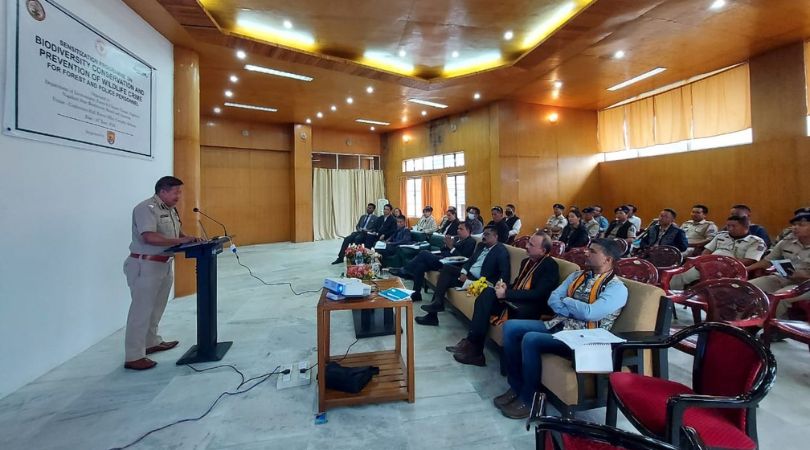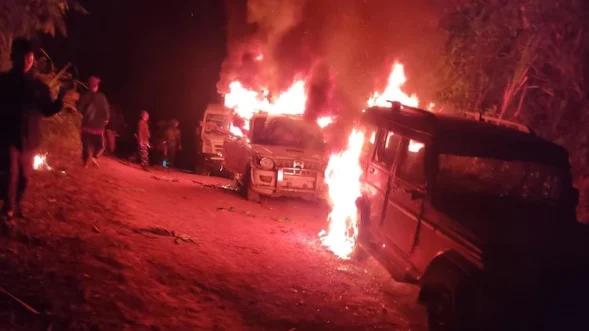
GUWAHATI:
To sensitise and create synergy across the spectrum for security forces and grassroots people on conservation of biodiversity and to combat wildlife crime, a sensitisation programme for forest and police personnel was conducted at the Conference Hall of Forest Offices Complex, Kohima.
Titled, ““Biodiversity Conservation and Combating Wildlife Crimes”, the programme was organised by Aaranyak, a biodiversity conservation and research organisation, in collaboration with the Nagaland State Biodiversity Board (NSBB) and with support from US Fish and Wildlife Service, on June 23.
Satya Prakash Tripathi, chairman of Nagaland State Biodiversity Board (NSBB) and a retired PCCF & Chief Wildlife Warden and HoFF, Nagaland, gave an outline of the status and trend of wildlife crimes in Nagaland.
“As about 80 per cent of Nagaland’s forest area is under private or community holding, the people must be made to understand the need for the protection of wildlife and the provisions of the Wildlife (Protection) Act, 1972,” he said.
In a recorded message, Bibhab Kumar Talukdar, Secretary-General and CEO, Aranyak, spoke on the importance of creating a strong information-sharing system and how it is crucial to building a strong network to curb wildlife crime – a crime that is the fourth largest in the world.
Conservator of Forest, K Hukato Chishi commented that though hunting had been a way of life among Naga people today over 60 per cent of the population support conservation of wildlife.
Addressing the workshop, which was also attended by senior forest and Nagaland Police officials, Kohima SP Kevithuto Sophie underlined that mass people in Nagaland, who understand the preciousness of nature, must be made a part of the effort to prevent wildlife crime.
He also candidly said that the State Forest Department must find a way to regulate haphazard stone quarrying and extraction of boulders from river beds which have spelt doom for the state’s biodiversity. He further said the privileged people in the state must become more sensitive to the conservation of biodiversity.
Notably, the Northeast, because of its richness in biodiversity, remains in the focus of the global clandestine cartel of wildlife traders as well as criminals that instigates poaching of wildlife as well as bio-piracy of floral resources.






